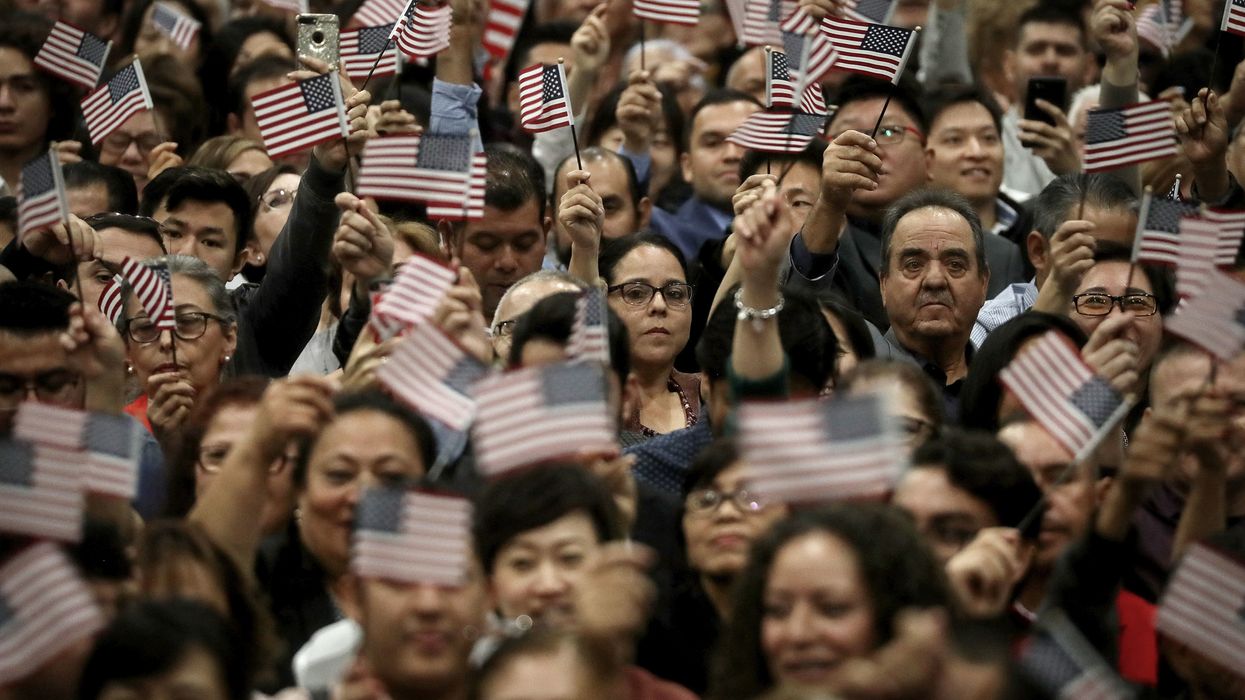Asher-Koenig, a fiction writer and retired psychotherapist, is a communications volunteer at Wolf-PAC, which advocates for a constitutional amendment to permit more regulation of money in politics.
Regardless of our differences, and despite the ever-widening rift between the left and the right, one thing remains true: Our leaders have not been responsive to the voice of the average American voter.
According to Martin Gilens, professor of public policy at UCLA's Luskin School of Public Affairs, "economic elites and organized groups representing business interests have substantial independent impacts on U.S. government policy, while average citizens and mass-based interest groups have little or no independent influence." While this has been an issue in American politics since the inception of our democracy, this reality has been exacerbated in recent years by a gradual loosening of restrictions on election financing.
Tight controls on campaign financing, enacted to protect the integrity of our democratic process, date back to the Tillman Act of 1907. The corruption of campaign financing began its slow but steady incursion into our politics in 1976, when the Supreme Court held in Buckley v. Valeo that political spending was a function of freedom of speech, and that restriction on such spending was a violation of the First Amendment.
In the Supreme Court's landmark 2010 decision Citizens United v. Federal Election Commission, the court held that the free speech clause of the First Amendment prohibits the government from restricting independent expenditures for political communications by corporations, including nonprofits, labor unions and other associations. This opened the door to a series of legislative decisions that have led to the out-of-control corruption we face today.
Now, we need to seriously address the impact of this corruption on our democracy.
Corruption in election financing refers to political spending by nonprofit — or 501(c) — organizations in the guise of social welfare organizations, unions and trade association groups. These types of organizations are not required to disclose their donors and can receive unlimited donations from corporations, individuals and unions. In this way, their donors can spend funds to influence elections, without voters knowing where the money came from, opening the door to a kind of corruption previously unknown in the United States.
Currently, numerous groups are free to spend unrestricted funds to advocate the election or defeat of candidates. They contend they're not required to register with the Federal Election Commission, because their primary purpose is something other than electoral politics.
Maurice Cunningham, an associate professor of political science at the University of Massachusetts at Boston, has studied corruption in political finance for years.
According to Cunningham, a 2016 ballot measure in Massachusetts regarding charter school financing was funded by a nonprofit called Families for Excellent Schools, in the amount of $25 million. This organization has no family members and appears to be nothing more than a conduit for secret money donations, according to Cunningham. When the donors were eventually disclosed, months after the election, they included members of the Walmart conglomerate in Arkansas, who had contributed as much as $5 million of the funding.
According to the New York Times, the 2014 midterm election was influenced by "the greatest wave of secret, special-interest money ever raised in a congressional election." And the Center for Responsive Politics reports that spending by organizations that do not disclose their donors increased from less than $338 million in 2008 to well north of $1.4 billion in 2016.
With the continuation of these secret donations in politics, it doesn't matter if you're a progressive or a conservative, it's the billionaires and giant corporations that will decide what bills get passed and what budgets are approved. Though we continue to go through the democratic process, it's never been more apparent that our votes just don't count. Because, even if our candidate wins the election, as long as our legislators are beholden to corporate interests, the will of the people remains immaterial.
In any election, I'm not going to be happy if the other side prevails, but I'll accept it as part of the push and pull of a political dialogue. I'm willing to lose, so long as we're engaged in a fair and equal fight. What I'm unwilling to accept is the abuse of power that's creeped up on us for the last four decades, the malignancy that essentially cheats all of us out of a real choice. The addition of a so-called 28th amendment to the Constitution of the United States would eliminate corrupt election financing for good and will protect the United States from future abuses of power that threaten to destroy the freedoms of our democracy — our right to free and fair elections.
And, most important, this remains a nonpartisan issue that affects us all — progressive, centrist and conservative. A recent poll by ALG Research/GS Strategy Group shows a majority of voters, Democrats and Republicans, rate "corruption in the political system" the most serious problem facing the country. Those polled say that the money spent by special interests impacts their lives in negative ways.
That's why Wolf-PAC is leading more than 50,000 Americans in working to add the 28th amendment to the Constitution, to end corruption and restore our representative democracy.
Knowing the game is no longer rigged may prove to be the key to mending the fear and animosity among us. Using the power of our Constitution to fix the corruption of money in politics, we can unite to rebuild a democratic process that acknowledges and honors the needs of every American.



















